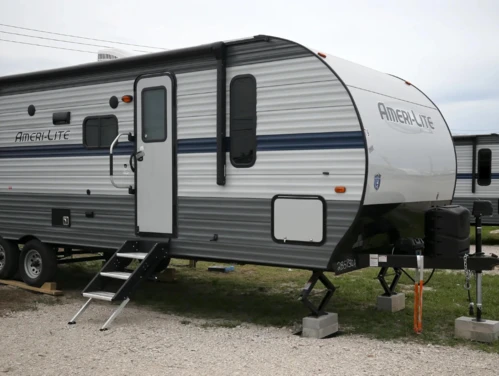On this page...
Back to top
About DRTHP
The goal of the Disaster Recovery Temporary Housing Program (DRTHP) is to provide temporary sheltering options for eligible disaster survivors as they pursue long term housing solutions. For this program, housing options may include recreational vehicles and travel trailers, for up to six months at no cost for Iowans whose homes were majorly damaged, destroyed, or deemed not habitable in counties currently under a federal disaster declaration.
- Disaster Recovery Temporary Housing Program (DRTHP) Fact Sheet (English)
- Programa de vivienda temporal de recuperación de desastres hoja de hechos (Español)
DRTHP In the News
- July 16, 2024 - Gov. Reynolds announces FEMA’s approval of Disaster Recovery Temporary Housing Program, opens applications
- October 18, 2024 - Sheltering assistance is still available to Iowa survivors as winter weather approaches
- April 3, 2025 - Temporary Sheltering Program for Last Spring’s Severe Storms to Conclude in May
Survivor Responsibilities
- The household must have a primary residence located in a FEMA Individual Assistance designated county that has also been declared for Public Assistance for the same disaster declaration: Adair, Adams, Buena Vista, Cedar, Cherokee, Clarke, Clay, Dickinson, Emmet, Harrison, Humboldt, Jasper, Lyon, Montgomery, Monona, O’Brien, Osceola, Palo Alto, Plymouth, Polk, Pottawattamie, Ringgold, Scott, Shelby, Sioux, Story, Union, and Woodbury.
- The household must have a valid registration with FEMA Individuals and Households Program (IHP) for disaster assistance and cannot have requested to withdraw.
- FEMA has determined the household is able to document status as an owner or renter of the pre-disaster primary residence.
- HSEM has determined that the occupant’s pre-disaster primary residence is not habitable as determined by the city or county.
- Once placed in housing, the survivor must demonstrate progress to obtaining long-term housing. This will be reviewed every 30 days. Once long-term housing is obtained the survivor will exit the program.
- Occupants of DRTHP must follow all emergency sheltering rules provided by the State of Iowa and outlined in the Occupancy Agreement. Failure to do so may result in program ineligibility and dismissal from the unit.
- Damages beyond normal wear and tear will be the responsibility of the survivor.
- This housing unit will be provided to the occupant at no cost. Any damages beyond normal wear and tear may be charged to the occupant.
- Cost associated with utilities will be the responsibility of the occupant.
